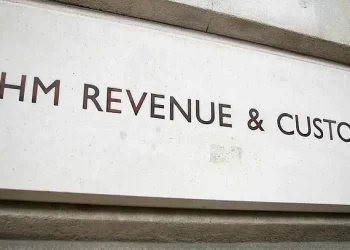The Bank of England’s decision to cut the base interest rate from 4.50% to 4.25% on May 8, 2025, will lead to changes in HMRC’s interest rates for late payments and repayments, impacting UK taxpayers by reducing penalties for late tax payments and slightly decreasing interest on overpayments.
Understanding the Changes
The recent announcement by the Bank of England has prompted HM Revenue & Customs (HMRC) to adjust its interest rates for late payments and repayments.
This change is directly linked to the base rate reduction from 4.50% to 4.25%, effective from May 19, 2025, for quarterly instalments and May 28, 2025, for non-quarterly instalments.
Implications for Taxpayers
- Lower penalties for late tax payments due to reduced late payment interest rates.
- Slight decrease in repayment interest received by taxpayers who overpay.
- Encouragement of prompt tax payments while ensuring fair compensation for overpayments.
- Direct reflection of monetary policy changes on tax-related financial charges.
- Time provided until mid-May 2025 for businesses and individuals to adjust their financial planning accordingly.
A Broader Economic Context
This adjustment follows a broader economic strategy by the Bank of England aimed at supporting growth amid slowing GDP and easing inflation pressures.
Historically, HMRC’s interest rates have been closely tied to the base rate set by the Bank of England, with late payment interest set at base plus 4% and repayment interest at base minus 1%, with a minimum floor of 0.5%.
Effect on Businesses and Individuals
The revised HMRC rates are particularly significant for small businesses and self-employed professionals who may face cash flow challenges if they miss tax deadlines.
Conversely, those expecting tax repayments will receive slightly less compensation in terms of interest paid back to them. This could affect household budgets or business cash flow management strategies.
International Perspective
The UK’s approach aligns with international best practices where fiscal policies are closely linked with monetary policies.
The adjustment signals a supportive stance towards economic growth amidst global uncertainties such as trade tensions and inflation fluctuations.
Other countries observing similar frameworks might consider this approach as a benchmark in aligning their own fiscal strategies with central bank policies.
Additional Reading
Food for Thought
This adjustment in HMRC’s interest rates highlights how interconnected fiscal policies are with broader economic strategies aimed at stabilizing growth while managing inflation pressures.
As these changes take effect later this month, individuals and businesses should reassess their financial plans accordingly to optimize benefits or mitigate potential impacts on their finances.
Discover more of Todays Top Breaking News Stories!
Sources: UK Government, Bank of England, MoneyWeek, and HM Revenue & Customs.
Prepared by Ivan Alexander Golden, Founder of THX News™, an independent news organization delivering timely insights from global official sources. Combines AI-analyzed research with human-edited accuracy and context.









